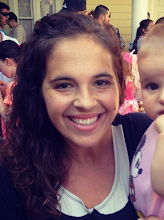When I was thinking about what would be the most beneficial way to approach the exam, I decided that the best thing to do would be to kill as many birds as possible with the fewest number of stones. One of my courses this semester, which I love, is a seminar on Italo Calvino, one of the more internationally famous Italian writers. So, of course, he seemed like a good choice for a special topic.
Here is my reading list:
Primary books
Calvino, Italo. Sentiero dei nidi di ragno (1946) - Path to the spider's nest
Calvino, Italo. Ultimo viene il corvo (1949) -
Calvino, Italo. Il visconte dimezzato (1951) - The cloven viscount
Calvino, Italo. La formica argentina (1952) - The argentine ant
Calvino, Italo. Il barone rampante (1957) - The baron in the trees
Calvino, Italo. La speculazione edilizia (1957) - A plunge into real estate
Calvino, Italo. La nuvola di smog (1958) - Smog
Calvino, Italo. Il cavaliere inesistente (1959) - The nonexistent knight
Calvino, Italo. La giornata di uno scrutatore (1963) - The watcher
Calvino, Italo. Castello dei destini incrociati (1973) - Castle of crossed destinies
Calvino, Italo. Se una notte d'inverno un viaggiatore (1979) - If on winter's night a traveler...
On its own, this list actually is really doable. I've read most of the books, and I feel like I could definitely use some of them in a dissertation. But, wait for it. The secondary list is the theory, criticism and otherwise much more dense and difficult section.
Secondary sources
Benjamin, Walter. Illuminations
Bové, Paul A. Early postmodernism: Foundational essays
Calinescu, Matei. Five faces of modernity: modernism, avant-garde, decadence, kitsch, postmodernism
Cannon, Joann. Postmodern italian fiction
Hutcheon, Linda. selection from Poetics of the Postmodern
Jameson, Frederic. Postmodernism, or the cultural logic of late capitalism
Luperini, Romano. selections from Allegoria del Moderno
Markey, Constance. "Calvino and the existential dilemma"
Markey, Constance. Calvino: a journey toward the postmodern
McHale, Brian. Postmodernist fiction
Pacifici, Sergio. selection from From Verismo to Existentialism: essays on the modern italian novel
Robbe-Gillet, Alain. For a new novel--essays on fiction
Todorov, Tzvetan. The fantastic: a structural approach to literary genre
Vattimo, Gianni. The end of modernity: nihilism and hermenetics in postmodern culture
Wittgenstein, Ludwig. selection from Philosophical investigations
Honestly, I was relieved that the list was finally approved and has been filed away into my personal database of things that I need to learn between now and August. It felt really good to go in with a list that I felt would be useful and was also not too daunting and hear "You know, you have too much criticism. But I'm very pleased with this list." What a feeling!
